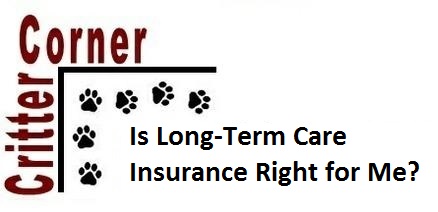Ask the Expert: Do you Lose Medicare or Medicaid Coverage if You Leave a Nursing Home for a Family Event?
Published: Fri, 09/20/13
|
|
|
 | |
|
Ask the Expert: Your Elder Law Questions Answered by Evan H. Farr, CELA |
|
Ask the Expert: Do you lost Medicare or Medicaid Coverage if You Leave a Nursing Home for a Family Event?
 Q. At the age of 60, my younger sister Anna is getting remarried. She is hoping that our 82-year old mother, Shannon, can attend and even sent her a plane ticket to Texas for the wedding. Our mother is on Medicaid, and is in a nursing home in Virginia. Mom is in the early stages of dementia and needs a lot of help with day-to-day tasks, but is able to travel if I go with her (I am a nurse). I also think it would be good for mom to stay for a few days to visit with friends and family.
My older sister, Maeve, also wants to travel with us to be at Anna's wedding, but she is on Medicare and has been in short-term nursing home care to recover from her recent surgery. She will probably need full-time nursing home care in the near future, like our mother, because she is beginning to need help with day-to-day activities like bathing, toileting, and getting around the house.
In both cases, the facilities have given my mom and my sister a hard time about leaving, saying that they could lose their beds and if not, that they will have to pay out of pocket for the days they are gone. Is what they are saying true? If mom and Maeve were to leave their respective facilities and go with me to the wedding, would they lose their Medicaid or Medicare coverage for their rooms? Worse off, could they lose their beds to someone else? Thanks for your help!
A. Congratulations to your sister on her upcoming nuptials! Nursing home residents, such as your mom and your sister, Maeve, do not want to miss out on important family events, but there is always the concern that they will lose coverage or their bed if they leave the nursing home.
For your sister, as you may know already, Medicare's coverage of nursing home care is quite limited and it only covers skilled care (treatment provided by a doctor or nurse). The Medicare Benefit Policy Manual states that "a short leave of absence to attend a family occasion is not, by itself, evidence that the resident no longer needs to be in the nursing home." The manual also states that "staff should not tell a resident that leaving the facility will cause coverage to lapse."
According to the Medicare Benefit Policy Manual, if your sister, Maeve, leaves and returns by midnight the same day, the nursing home can bill Medicare for the day. However, if Maeve is gone overnight, Medicare will not compensate the nursing home for the time missed. If your aunt wants to leave for a few days, she should check with the nursing home to make sure the bed can be held. The nursing home may charge her a bed-hold fee in order to keep the space available.
If your mother, who is on Medicaid, leaves the nursing home to visit family, it is typically referred to as "therapeutic leave." State laws regarding therapeutic leave vary widely. Some states will pay to hold a bed for as long as 30 days a year, while others pay nothing at all for such leave. Each nursing home is required to provide residents with information about their bed-hold policy before the resident leaves the facility. In addition, if a Medicaid recipient is absent longer than the nursing home's policy allows, federal law requires the nursing home to readmit the recipient to the first available room.
In Virginia, Medicaid does not pay for any bed hold days when a nursing home resident is admitted to the hospital unless the leave is within her plan of care and it is noted in her chart. If noted, therapeutic leave includes visits to relatives or friends or admission to a rehabilitation center for up to 7 days for evaluation, but it does not include admission to an inpatient hospital. If it is not part of her plan of care, unless the resident or family chooses to pay to hold the specific bed, the facility has the right to offer the bed to another person. However, in accordance with federal laws, while the hospitalized resident may not be able to return to the same bed if it has already been filled, he or she still has the right to be readmitted to the same facility to the next available bed in a semi-private room, as long as the resident still requires nursing home care and is eligible for Medicaid nursing facility services.
In the state of Virginia, two written notices about readmission rights are required. The first notice must be given to the resident and a family member or legal representative before a resident is allowed to go on therapeutic leave (probably given at time of admission as part of the admissions package). This notice must state the duration of the bed hold policy under Medicaid and the facility's policy regarding the bed hold period, including the facility's readmission policy. A second notice about the bed hold policy must be given at the time the resident is transferred to the hospital or for therapeutic leave.
In addition, the Virginia Medicaid rules states that the facility must post a notice regarding readmission rights in a conspicuous place accessible to residents and their families, and that the resident's record must include a statement signed by the resident or her representative that she has been fully informed about her rights to readmission.
You mentioned that Maeve is nearing the need for long-term nursing home care. As you are probably well aware because of your mother, nursing homes in Northern Virginia cost $10,000- $12,000 a month. Life Care Planning and Medicaid Asset Protection is the process of protecting your assets from having to be spent down in connection with entry into a nursing home, while also helping ensure that you or your loved one get the best possible care and maintain the highest possible quality of life, whether at home, in an assisted living facility, or in a nursing home. Learn more at The Fairfax and Fredericksburg Elder Law Firm of Evan H. Farr, P.C. website. Call 703-691-1888 to make an appointment for a no-cost consultation.
-------
  Dear Ernie and Jannette,
I am contemplating whether long-term care (LTC) insurance is right for me. Can you provide some insight to educate me about who should consider LTC insurance and some of the pros and cons? Thanks! Bess Tubuyit-Orknott -----
Dear Bess, Long-term care (LTC) insurance is one way to pay for long-term care, but LTC insurance is not ideal for everyone. According to a recent CNBC newscast, "If you have less than $200,000 - $250,000 in total assets, the chances are very good that the premiums you would lay out for long-term care insurance would be cost prohibitive relative to the risk that you're actually shielding your assets from, because you don't have enough assets. On the other end of the spectrum, people with over $2 million in assets may want to consider self-insurance as part of their long-term care plan. Those in the middle should consider some form of long-term care plan, but it may or may not include insurance." If you are considering LTC insurance, first look at each policy very closely because each one is written differently. Also, look closely at the insurer's claims payment history and whether they have been increasing premiums for existing policy holders. Keep in mind how LTC insurance has failed some consumers:
There is greater than a 70 percent chance for people over the age of 65, that at some point in their lives, they will need long-term care services. That alone says that you have to have a contingency plan in place. With long-term care costs rising faster than inflation, insurers have been raising premiums sharply. If you have done your research and decide LTC insurance may right for you and your family, you should talk with an experienced Elder Law Attorney such as Evan Farr before you actually purchase it as part of your long-term care plan. First of all, there are numerous alternatives to long-term care insurance, such as the Living Trust Plus(TM) Asset Protection Trust. Secondly, there are many issues to be considered when purchasing long-term care insurance, a lot of which involve understanding how Medicaid works and how Medicaid, and your care, might actually be negatively affected by long-term care insurance. Evan Farr has actually written an FAQ about some of these issues, which you can read here: http://www.farrlawfirm.com/LTC-Insurance-FAQ.htm. About Ernie and Jannette: African dwarf frogs Ernie and Jannette have lived at The Farr Law Firm for about two years, and they belong to Evan and Jeannie Farr. They reside on Jeannie's desk, and love socializing with Big Red the Betta fish and greeting all of the clients that come to the firm. |
| ||||||||
|
|
Unsubscribe to this Newsletter |









